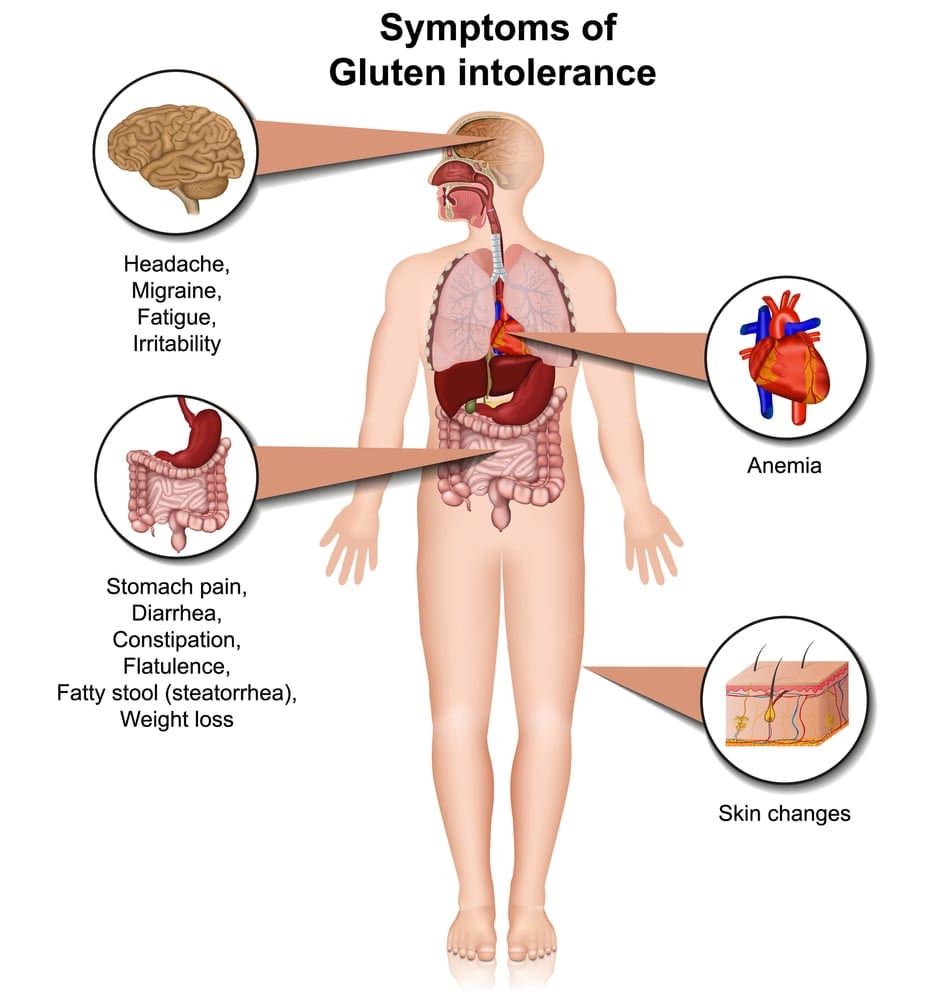Summerlin Gluten Intolerance Treatment
Gluten Intolerance Treatment In Summerlin
A person’s inability to consume gluten is commonly referred to as gluten intolerance. Conditions such as Celiac disease, wheat allergies, and gluten sensitivity all fall into this category. Gluten intolerance has long been subject to speculation by medical professionals, many of whom used to believe that symptoms of gluten intolerance were not caused by any digestive-related medical condition. Luckily, gluten intolerance has finally come into the spotlight of the medical community over the last few years, thanks to a growing body of research. As a result, millions of people suffering from gluten-related diseases have finally been able to find relief for their symptoms.
Do you suspect that you may be gluten intolerant? Schedule a consultation with Dr. Chanu Dasari, a top Summerlin gluten sensitivity specialist. He will evaluate your symptoms and recommend the best treatment plan for you.
So, What Is Gluten?
Gluten has no doubt been the subject of much undeserved scrutiny in recent years. While gluten is legitimately harmful to certain people, it is actually a common, harmless protein compound found naturally in grains such as wheat, rye, and barley. It is the part of the chemical equation in baked foods that is responsible for their irresistible moist, chewy texture. For this reason, as well as its other desirable properties, gluten has made its way into many processed foods as an additive.
Gluten is present in many food products that we consume every day. While most people know that it is always found in wheat-containing products like bread, crackers, and pasta, it is also commonly found in unexpected products like soy sauce, salad dressings, and even beer and some wines.
Symptoms Of Gluten Intolerance
Unfortunately, people with gluten intolerance are often led to believe that they are experiencing regular day-to-day discomforts. This often means that those suffering from gluten intolerance-related issues may try to simply get used to their symptoms, such as brain fog, headaches, persistent digestive issues, and skin problems.
Sometimes more severe issues like depression can be caused by gluten intolerance, and often go untreated for years. Joint pain is another common symptom to watch out for.
Summerlin Gluten Intolerance Diagnosis
If you believe that gluten intolerance is causing your discomfort, your physician will start investigating by testing for Celiac disease, an autoimmune disease where the small intestine is damaged by gluten ingestion. You may be asked to give blood samples for lab analysis of gluten antibodies, a telltale indicator of gluten sensitivity. The doctor may also recommend an endoscopy test to closely examine your small intestine for any abnormalities.
If Celiac disease is ruled out, Gluten sensitivity is the next possible diagnosis. Few proven methods of testing for gluten sensitivity exist, though your doctor may have their own approach to diagnosing this condition. Ceasing your consumption of gluten and paying attention to how you feel is currently the most effective test for gluten sensitivity. If your symptoms go away, then you should assume that you have a sensitivity and continue your gluten-free diet.
Gluten Intolerance Treatment Options in Summerlin
The only known treatment for gluten sensitivity and Celiac disease is following a strict gluten-free diet. Though gluten intolerance is now widely accepted as a legitimate medical concern, the proper treatment regimen has yet to be agreed on. Some healthcare professionals think that gluten should be thoroughly removed from the patient’s diet, while others believe that certain treatments can allow for lapses in abstinence from gluten. Consult the specialist for their thoughts on treatment methods for gluten sensitivity.
Please note that completely eliminating gluten from your diet has no additional health benefits, aside from clearing up symptoms of gluten intolerance. If your symptoms persist despite eliminating gluten from your diet, you may reincorporate it and talk to your doctor about other possible causes of your symptoms.
Summerlin Gluten Intolerance Treatment Expert Dr. Chanu Dasari
Dr. Dasari is committed to providing the best care to all of his patients. He is an affiliate of Summerlin Hospital, providing the best inpatient and outpatient surgical care closest to his patients. If you believe that you may be suffering from gluten intolerance and would like to have your symptoms evaluated by Dr. Dasari, contact his clinic, Minimally Invasive Surgery, at (702) 602-6600 to schedule a consultation.










